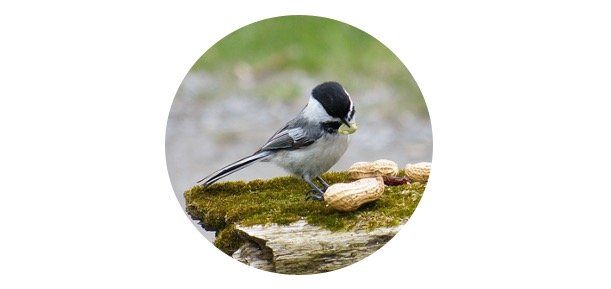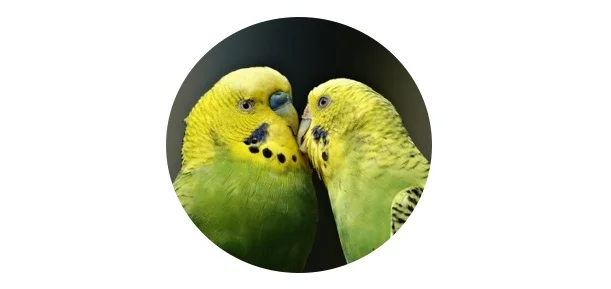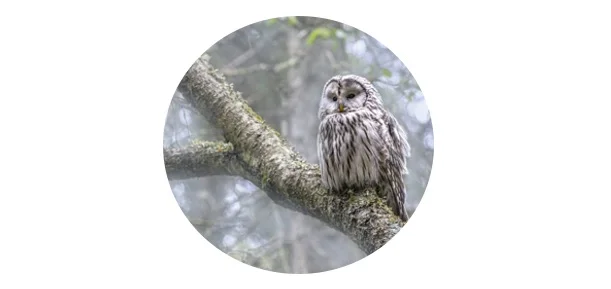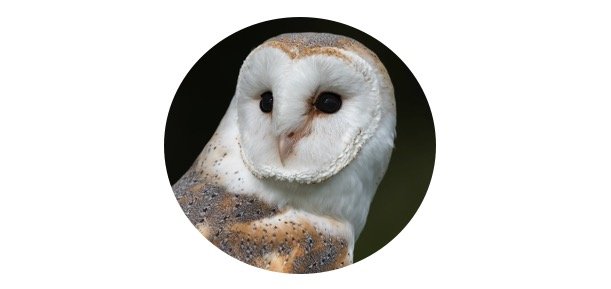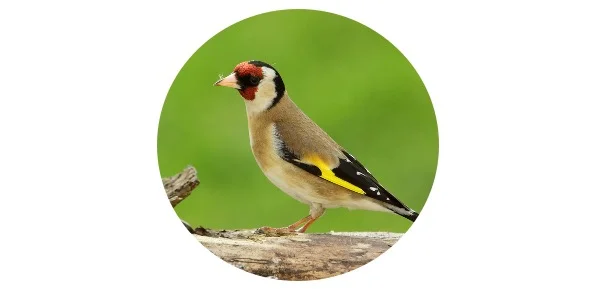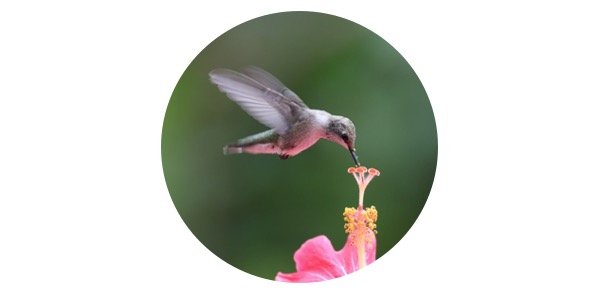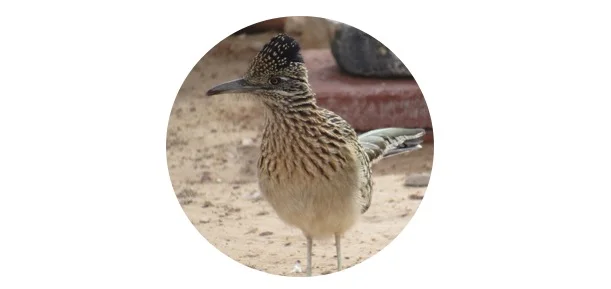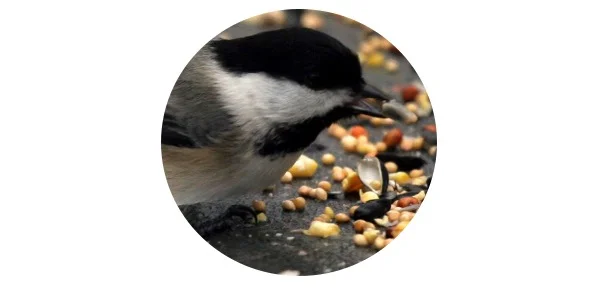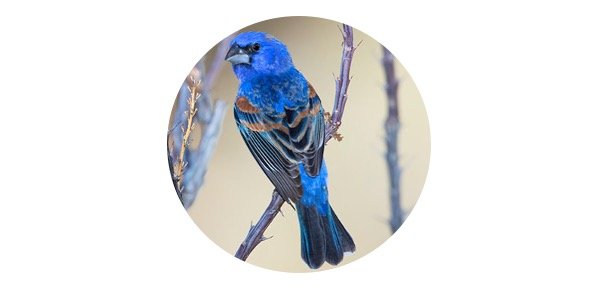What Do Pigeons Eat? All You Need To Know
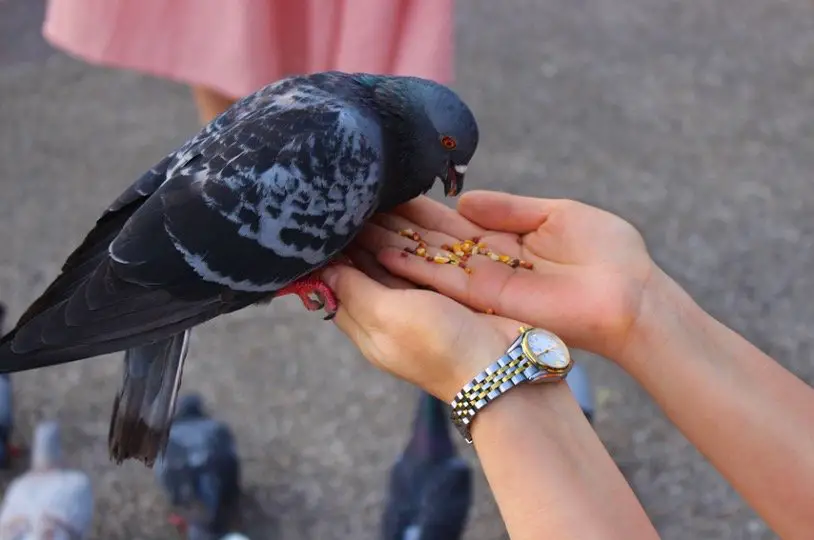
Table of Contents
What Do Pigeons Eat?
Pigeons are members of the Columbidae family and are among the most adaptive birds on the planet. There are 351 species in the family, which is found all over the planet except in the Sahara Desert, Antarctica, and the high Arctic.
Pigeons are the most common garden bird in the United Kingdom, and they are usually seen visiting the bird table or bird feeder. So, what do pigeons eat?
Pigeons are uncomplicated omnivores, however they cannot swallow large numbers of insects. They enjoy nuts, fruits, and berries and will gladly eat until they are completely satisfied, which is why well-fed pigeons are often fairly fat!
Pigeons will scavenge any food they can get their hands on, especially if they reside in cities where natural food supplies are scarce. The common pigeon is an under appreciated bird.
Pigeons are extraordinarily clever and capable of accomplishing complicated tasks, not only among birds but among all creatures. Pigeons can detect the Earth’s magnetic field, giving them a sixth sense.
The Dickin Medal, the animal equivalent of the Victoria Cross, has been awarded to 32 pigeons! Pigeons are a popular garden bird that feeds all year on bird tables, feeders, trees, and the ground.
Continue reading to learn about pigeon diets and other fascinating facts about this clever and successful bird!
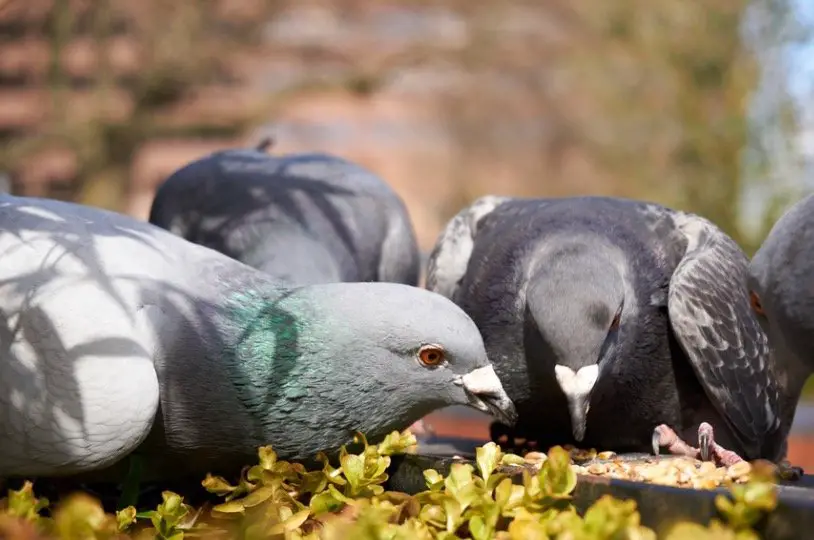
What do pigeons eat in the wild?
Distinct kinds of pigeons have different diets, although all pigeons are omnivores, capable of eating pretty about everything. Natural-environment pigeons, such as the Wood pigeon, consume largely seeds, berries, grains, and fruits.
When they aren’t at the bird table, pigeons may be seen grazing on lawns and meadows. Feral pigeons in cities are scavengers that will consume almost anything.
Plant materials are preferred by most pigeons over meat or insects. They also like eating fruits and veggies.
What do pigeons eat in the winter?
Pigeons eat almost the same in the winter as they do any other time of year, although they will increase their protein and carbohydrate intake to prepare for the cold. Grains and seeds are abundant in protein and offer pigeons and other birds with the protein boost they need to grow fat and muscle for the winter.
Food becomes more limited in the winter, yet pigeons seldom struggle to locate the grains and seeds they need to thrive.
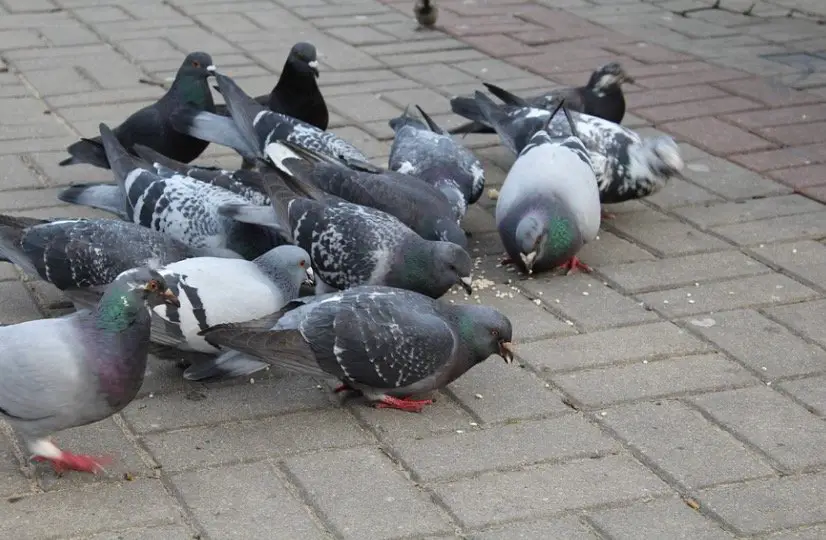
What to feed pigeons?
Pigeons are natural seed and grain eaters that will eat any seed. They are frequently described to as granivorous, which means they eat mostly grains and seeds.
Pigeons thrive on wheat, oats, maize, rice, peas, and flax. Pigeons can gladly ingest tiny insects as well, so if given the option, they will frequently eat dried wax worms and mealworms.
Pigeons can eat just about any bird seed mix – they’re among the least picky garden birds. Vegetables and fruit are also good sources of nutrition for pigeons. Wood pigeons, in particular, adore eating farmer’s cabbages and lettuce!
What should you not feed pigeons?
While pigeons will eat insects and even meat if they are hungry enough, they mostly need seeds and grains to survive. Bread is good in moderation, but the fundamental problem with bread is that it is nutritionally deficient and does not supply birds with enough quantities of micronutrients.
White bread is inferior to seeded or wholemeal bread. It is also critical not to provide mouldy food to birds, since the fungus may be poisonous.
Dairy products are also unsuitable for most birds, since they can not handle lactose well. Pigeons only eat seeds, vegetables, fruit, and grains!
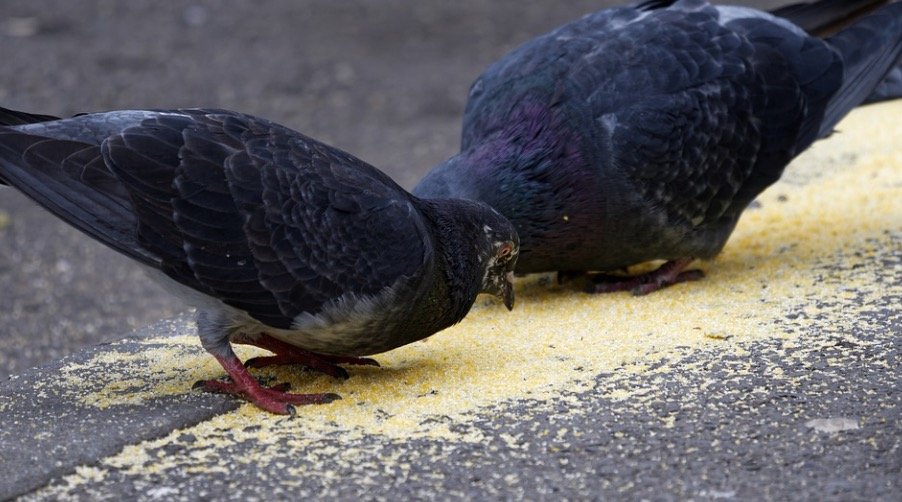
What do wood pigeons eat?
Wood pigeons are voracious feeders of vegetables, making them a nuisance pest to farmers raising cabbages and other leafy greens. They’ll also devour a lot of seeds and grains. Wood pigeons will gladly eat much of anything you put out on your bird table, as long as it’s a great and varied selection.
What do baby pigeons eat?
Baby pigeons are weaned on something called pigeon milk (also called crop milk). Pigeon milk is not milk in the mammalian sense, but rather a fluid generated in an adult pigeon’s stomach (crop). It is regurgitated by the pigeon parents, and the chicks eat from their lips.
Crop milk is also produced by flamingos and male Emperor penguins for their babies. Pigeon milk is exceptionally abundant in fat and other concentrated nutrients, which aid in the rapid growth of pigeon chicks.
Pigeon milk may be made by combining foods such as oats with water, or by using a particular baby bird liquid recipe. After around three weeks, baby pigeons can begin eating solid food, but their bills will not be robust and hard enough to chew hard seeds for another two to three months.
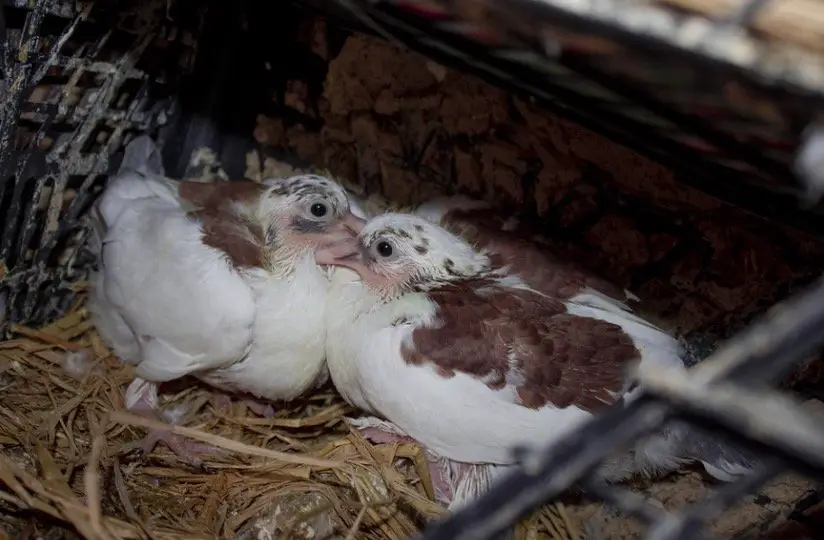
Can pigeons eat rice?
Absolutely. Although standard white rice is not very healthy, pigeons may safely take it as part of a well-balanced diet. Wholemeal rice has more nutrients. The main hazard of rice, particularly uncooked rice, is that it moulds fast.
Can pigeons eat bread?
Bread is not absolutely detrimental to pigeons and other birds, although it is nutritionally deficient and very filling.
If a bird consumes a lot of bread, it is unlikely that it would seek out other foods to supplement its diet with the other nutrients it needed. While bread is acceptable in moderation, too much bread is harmful to pigeons and other birds.
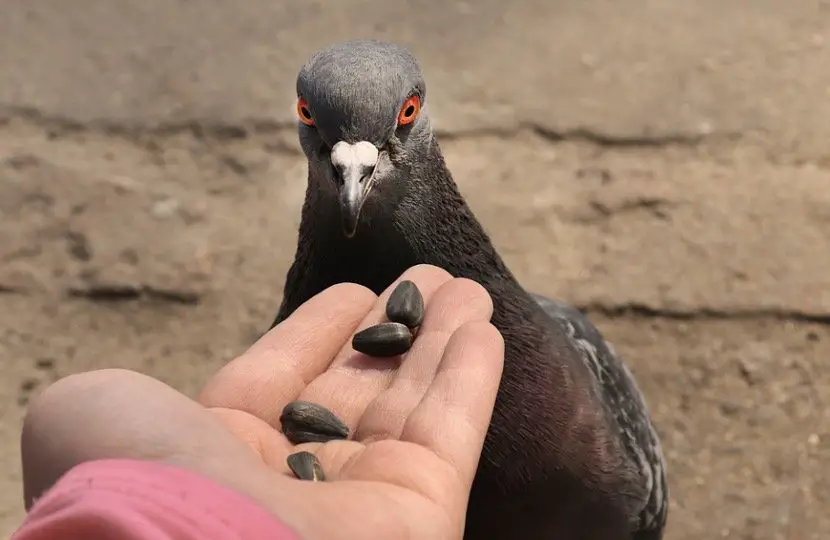
Do pigeons get fat?
Despite their excellent flight abilities, pigeons seldom migrate. In reality, many people will not go far from where they were born. They’re wonderful homebodies that like to lounge about, perch, sit, and feed, which is why they may grow pretty chubby.
A fat pigeon regularly eating from a backyard bird table is a frequent sight, but it’s almost never a symptom of a serious health problem.
Many birds need high-fat diets anyhow – pigeons are just adept at effectively fattening themselves!
